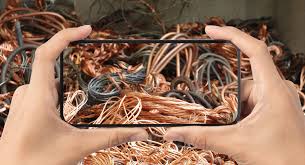Metal thieves have been a problem for a long time, but sky high prices now mean its a major threat given our reliance on copper for nearly everything in modern life.
I’ve long been aware that thieves have targeted copper for its resale value, but what was once a relatively minor offence has lately become front page news as thefts impact everything from communication, energy, transport and even public lighting.
The New York Times recently highlighted the problem, calling their story “Metal Thieves Are Stripping America’s Cities”. The article paints an alarming picture, listing countless examples of theft across the country including 6,900 cases of copper wire theft in the last fiscal year in just one district of Los Angeles, up from 600 cases five years ago. In fact just this week thieves carted off a bronze statue from a park in Seattle.
And its not just inconvenience either. Replacing all that copper costs millions of dollars for cities and public organisations each year—and tax payers of course—both in terms of the copper itself, the labour to get it repaired and any downtime in services.
But it’s also dangerous. Impacted electricity, communication & water failures can be life threatening, something the New York Times says already happened when a man was hit by a car and killed while crossing a street near his home where streetlights had gone out due to copper theft.
It’s a big problem here too of course. Last month 3 Sydney men were charged over the alleged theft of over 300 tonnes of copper wiring, while Ausgrid reported 74 separate incidents across the network in the last 9 months and Queensland Energy said copper crime had tripled since 2020, with almost 400 incidents last year alone.
Stopping it is now a major priority globally. Los Angeles has set up a metal task force and is considering prosecuting scrap metal companies, the Canadian Telecommunications Association has called on its government to boost fines and—I think this option looks the most promising—Minnesota now requires people selling copper scrap to obtain a license from the state.
It’s now on the agenda of state & territory police here too, but given its rapid growth it may also take governments to step up too. Our green, smart future just may depend on it.
Cheers, John Fennell
